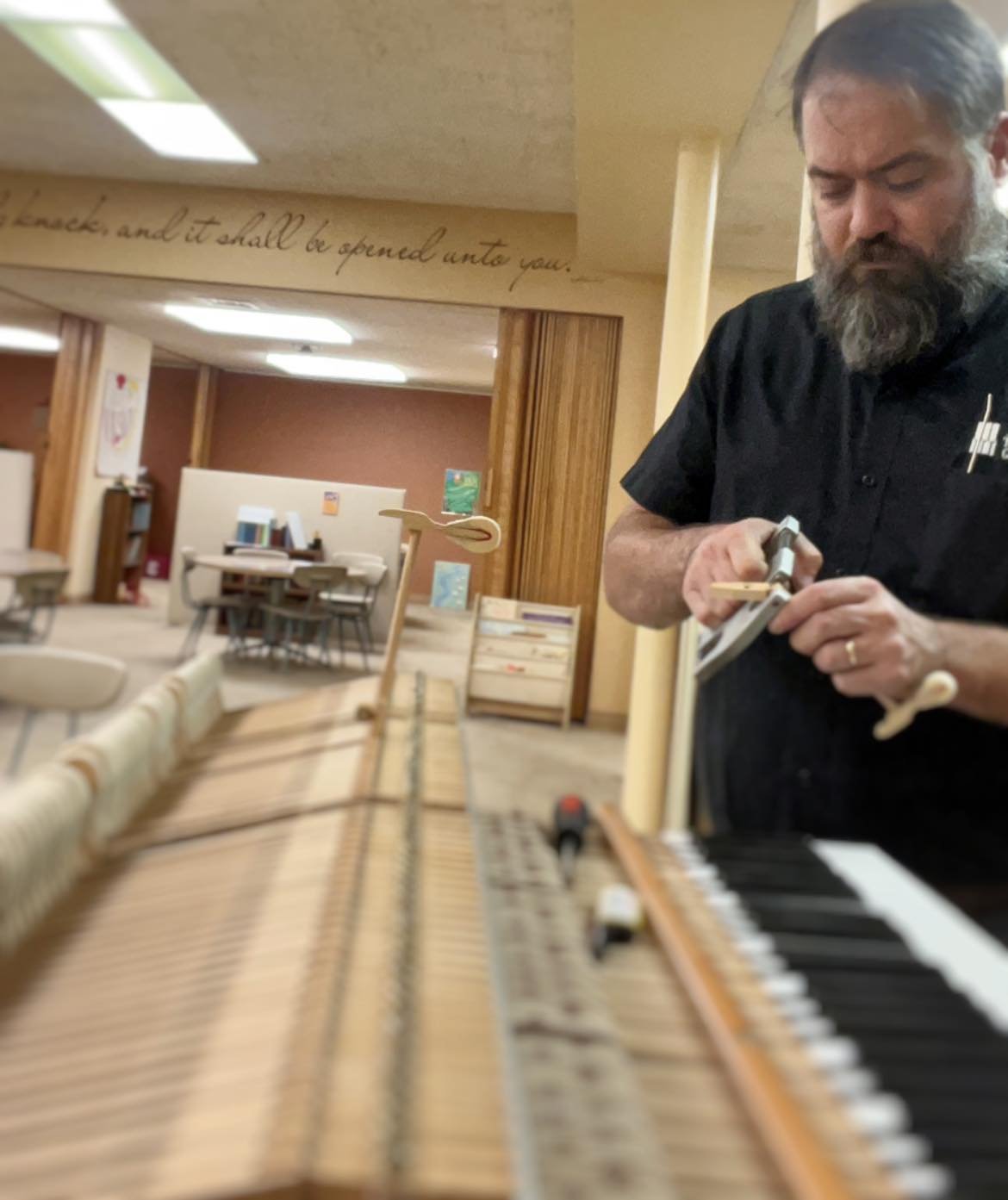
Piano Life Saver System - Controlling Temperature and Humidity
The Piano Life Saver System, also known as a humidity control system for pianos, is a device designed to help maintain stable humidity levels inside a piano. This system is installed within the piano and consists of several components, including a humidifier and a dehumidifier, as well as a control unit. Its primary purpose is to prevent the negative effects of fluctuations in humidity on a piano's structural components and tuning stability.

What is Piano Voicing?
Voicing a piano is a process of adjusting and modifying the tonal quality of the instrument by working on several aspects of the pianos functionality, including action regulation, damper work, and most importantly, the quality and shaping of the hammers. The purpose of voicing is to achieve a specific and desirable tone, allowing the piano to produce a balanced, clear, and expressive sound. Voicing is typically done by a skilled piano technician or piano tuner and involves several key steps.

Tuning and Musicality?
When you tune a piano, yes, you are listening to a pitch (or several pitches) but you’re more listening to how the sound is changing and behaving.

Pitch vs. Tone
Pitch and tone are intertwined in a piano's sound, working together to create the unique character of each note. The pitch determines which note you hear, while the tone adds depth and color to that note. The balance between these two elements is essential for a pianist to convey emotion and expression in their music.

Unexpected Discoveries: Finding Dog Food Under the Keys of a Client's Piano
In the world of piano tuning and maintenance, one encounters a multitude of surprises. From antique treasures hidden in old instruments to mysterious sounds that defy explanation, each day brings something new. However, few experiences rival the perplexing discovery I recently encountered while servicing a client's piano—a cache of dog food nestled beneath the keys.

Chasing the Piano Buzz
Buzzing and rattling sounds in your piano can be vexing, but they are usually solvable with the right approach. Regular maintenance and care, along with prompt attention to any unusual sounds, can help keep your piano in excellent playing condition and ensure that it continues to produce the beautiful music you love.

Sticking Keys? Why Me?
Sticking keys on a piano can be a frustrating issue for pianists, but it's a problem that can often be resolved with some basic maintenance or professional assistance. Regular cleaning, humidity control, and careful observation of your piano's condition are key to preventing and addressing sticky keys. By taking good care of your instrument, you can continue to enjoy the beautiful music it produces for years to come

Understanding Humidity Changes and Your Piano
Changes in the humidity can affect all of these things that is why it is important to keep the piano in a controlled environment.

What is Piano Regulation?
Regulating your piano is an essential aspect of piano maintenance that involves adjusting and optimizing the various mechanical parts of the piano's action mechanism. This process ensures that your piano plays accurately, responsively, and with consistency across all keys.

